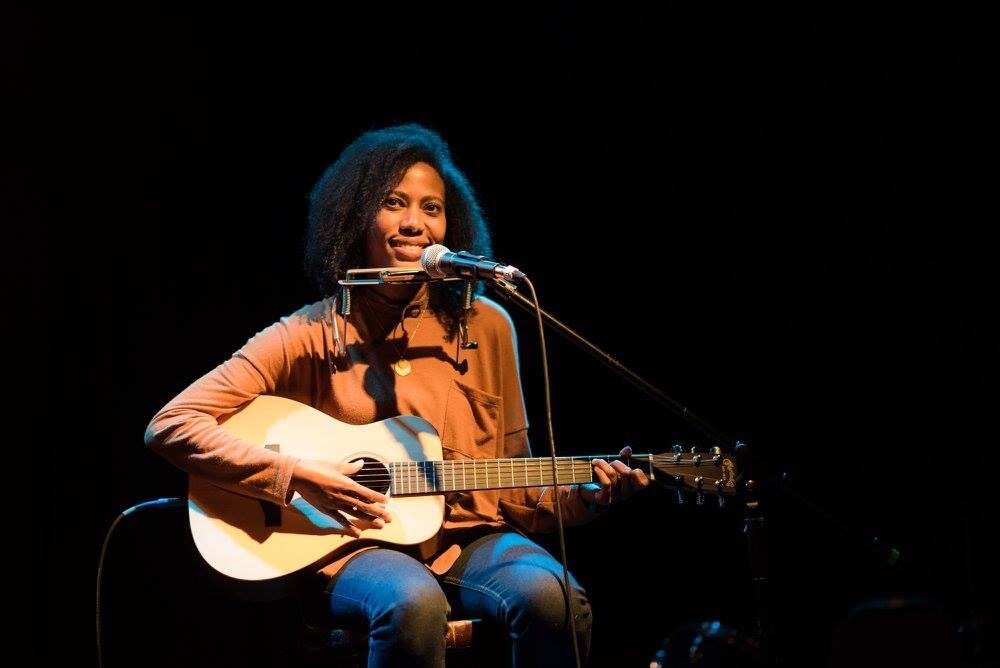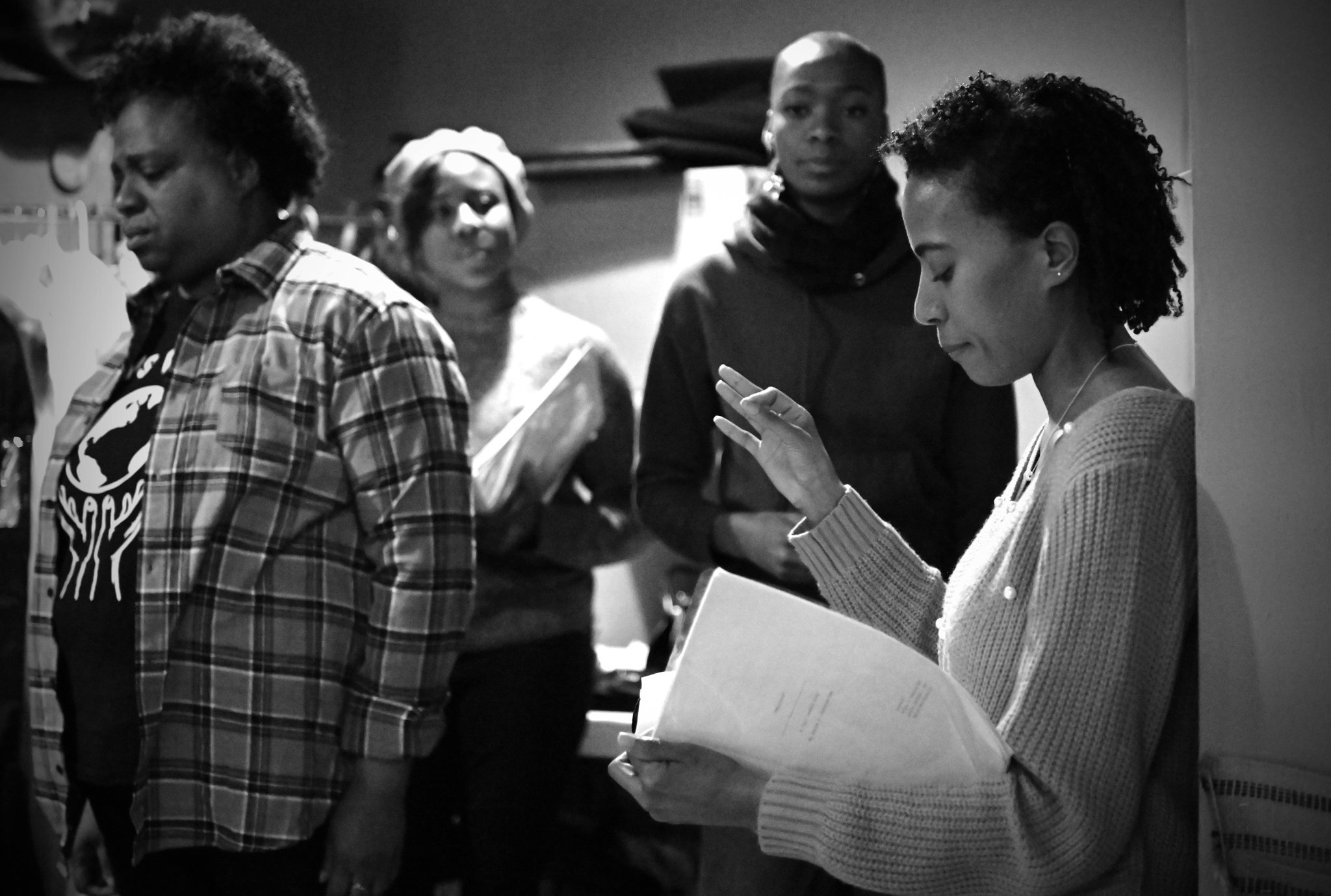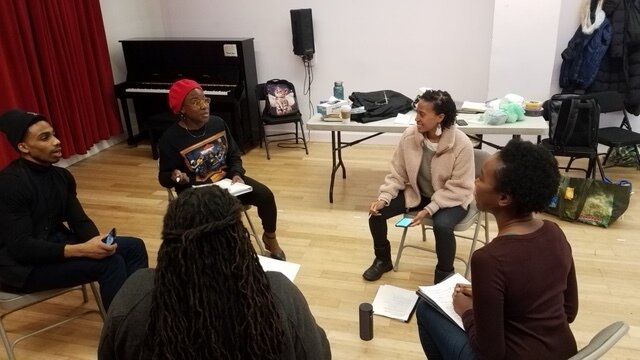Why Black Actors Need Black Writers
A Black actor performs.
I love a good telling, based on the superstition of covered mirrors. Unveiling the mass of heartbreak in the 1960s South. The reflections illuminate past loves that never leave.
Ashley Noel Jones is a musician, songwriter, educator, and actress. She worked on Parity Productions’ Mirrors. Jones played Alma Jean and composed some of the music for the show. Mirrors is gearing up for a premiere November 10th, 2021. A filmed-staged production of the play by Azure D. Osborne-Lee.
“Theater has always been a place where it felt like the rejects could go. So, it's really cool to say, ‘Yeah, can we continue that..?’ It's not just that there will be a place at the table. The table will be recreated by those eating at the table. There is no table, we are making the table together.”
It was an honor: to hold space, and speak in real terms about the real footwork this story is. On behalf of the Black and Queer experiences in this world.
Jones was full of insights about the current state of our world, and how theater will hold as a marker for it.
In the rehearsal process there was a heavy awareness of identity. From Ashley’s recall, it seems that it was a space that felt inclusive, that felt inviting for people to be who they were.
What Is An Inclusive Performance Space
Ashley Noel Jones (she/hers), a Black actress, plays acoustic guitar in a spotlight.
“ ‘This is your name.. this is how it's pronounced.. what are your pronouns..?’ It was so beautiful to [create] this space that felt brave for people. To be who they are. We saw a lot of this in the “racial reckoning” during the pandemic.. But this experience continues to make me hopeful. Because you are in the space... where these are all different people, coming from all different walks of life. Coming together to create this thing, by this beautiful Black trans folx..”
Black actress and musical director photographed is Ashley Noel Jones in rehearsal for Mirrors.
Black Southern Hymns: Composing Mirrors
“This was a really cool experience with Mirrors because.. there is only one piece of music that Azure has written.. There is a moment where this song is very important to the script. In the theatre space that we were in originally at Next Door New York Theater workshop, the space is weird.
There are certain entrances and exits. Cast members would [have to] cross the entire theater down the back.
You go through some stairs, the prop room, all the way around to center through the other side. [To] help cover that, Ludovica had had this idea to come up with these sort-of musical interludes. Early on in the process, I started talking with her about what that looks like.”
“I am from the South. I am into a lot of Roots, and BlueGrass [genres]. I was into the [music] that people don’t often associate with black folk. [And, I’m like] ‘No, we created this.’... An incredible dramaturg, also helped create a lot of spaces for music. Between that and my own research, I was able to have a lot of tracks. Smithsonian folk [recordings] of black folk singing church music in the South. So, being able to start that research... to come up with songs [to see] where it could be placed… What’s happening [in] this moment? What is this about? And is there a song?”
Black theater in New York image of Ashley Noel Jones in Parity’s production of Mirrors.
“...You’re trying to follow what the melody is [through these old folk hymns]... It was really fun to arrange… The show isn’t a musical. It’s a play with music in it. And even with the cast, everyone could carry a tune… but there were a few people who were really strong singers.
For the film, the pandemic threw something completely different into it. Because we couldn’t be singing in the theater together. With COVID compliance we were very careful about keeping everyone safe. We know that transmission happens a lot in those spaces. Of singing, or people yelling.
We were just hitting our stride for the rest of the run.. and then having this moment where it was like, that was it… We all thought, ‘Yeah, ok, this will pass in a month or so. And then theatre will come back... and Next Door New York Theatre Workshop will give us another chance to do it in the summer.
Here we are over a year and a half later [and] theater is just now coming back.”
Accessibility in Theater: “..Tickets are expensive..”
“It's really amazing to see how artists got creative during this time…
‘How do we make live theater feel like live theater... if it has to be watched on a phone?’”
Live Theater versus Filmed Theater
“That line that you say...
You can have the same inflection... but there’s something different every time... or crazy stuff happens like, ‘Oh that person can’t get into their costume!’”
Black Actors Doing Work That Serves Them
“As an actor, you don’t always get to work on something that you like or that moves you... I’m trying to get to a place where I am confident in what I want enough... and what I want to tell the world what I want… If something doesn’t serve me, I’m ok with saying, ‘No, that’s a pass.’
I remember I had an audition tape for a short film... and I remember reading the beginning of the script and it was really lovely.
[I was like]... ‘Oh this is great'... And then it ended… of course it was about race, and then it ended with one of [Black] characters getting shot. It was a whole thing. Even the way it was written, they bleed out on the floor.”
Black actors Ashley Scott (she/her) and AnJu Hyppolite (she/her) in Mirrors.
“And I was like, ‘Nope, this [don’t] serve me. And I remember having that moment with my reps like, ‘No, I’m gunna pass on this.’
As an actor, you don’t always get those moments… When I got the audition for Alma Jean [in Mirrors] I was just blown away.
I think my only trepidation [was] imposter syndrome, like am I good enough to do this?...
I didn’t have any real fear of delving into those places. She’s going through a traumatic experience of having loss this parent... and coming from a single parent home... Where there is no other parent... She really is on her own… And to think about the way in which we all hold trauma… How it manifests within our actions. As a black woman, we are the strong ones, you gotta be strong and tough for everybody.”
Suzanne Darrell (she/her) and Ashley Scott (she/her), two Black actors in Mirrors.
“Getting a chance to play with what that looks like, with this young woman who is coming into her own. And who is coming of age. Whose dealing with this trauma. Where in these moments, it seems like it's almost not affecting her. But it's because it's affecting her so deeply.
.. Getting a chance to do it in this film capacity, you have even more of a chance to capture that.. The audience is going to get to see the way you might tuck your hair behind your ear.
There are a lot of moments where Alma Jean doesn’t speak.. During this time, all these other things have to be happening.”
Fences, But this time Osborne-Lee not Wilson
“I can't wait To see people in college, people in grad school, doing scenes from Mirrors, in their scene study class. And getting a chance to really connect to something... This is [...] the tip of the iceberg for Azure. There is so much more to the work that I'm so excited to watch to see how that unfolds. We need it. I can't wait for people to get to see it. And for us all to get to learn... What are the next steps for Black theater? What's the next steps for Queer theater? ... There is going to be a section in theater history books that's going to be about this time. Of what people did and how they challenged things... Some kid could [...] watch this, when they are doing a scene from Mirrors, twenty, thirty forty years from now... which we all do. These scenes from forever [ago], 'Oh yeah, we're going to do this O'Neal play'!... Getting to watch. I've watched ... I'm a nerd... so I spent a lot of time at NYU at the library at Lincoln Center... watching old clips of plays and watching Viola Davis doing August Wilson. Getting to see those clips of those recordings. It's cool to think ... 'There could be a [point in] time where some kid is prepping for their scene for this. And it's going to be their audition monologue... is going to be Alma Jean's moment, where she talks about her mom…”
Azure D. Osborne-Lee's Mirrors premieres online this Fall and has a physical premiere at the AC&C. Get ticketshere. You may also find more on Ashley on Parity’s Database.






